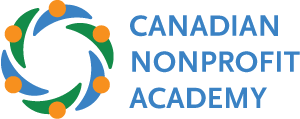Many nonprofits we work with complain that their boards lack passion, inspiration, and focus. Their board members don’t follow through on what needs to be done to support their mission and vision and better their organization. Members are on the board for all the wrong reasons, they are never prepared, they shy away from committee meetings, they never speak up, and they lack creativity and curiosity.
These board members lack the right volunteer mindset.
A board member with the right volunteer mindset will be passionate about your cause, eager and willing to participate, and properly prepared for all board events. They will also be excited about committee work, comfortable expressing their ideas, and curious to learn more. They will leave their ego at the door, and always bring fresh ideas to the table. Finally, they will be an excellent communicator.
Let’s look at each of these volunteer mindset traits in more detail:
Passionate About the Cause
The last thing you want is a board member who is only in for career advancement, clout, or reputation. You want board members who have a strong connection and passion for the work being done by your organization and who are committed to your mission and vision. This skill cannot be learned but it can be fostered and encouraged. . Members with this volunteer mindset are reliable, enthusiastic, passionate, focused, and always willing to go the extra mile.
Eager and Willing to Participate
When recruiting board members, you want to look for ones who are:
- equally as enthusiastic about supporting your cause as they are about putting in the time to participate
- understand that their primary allegiance is to the mission of your organization
- able to financially contribute, if this is an expectation.
- able to make time for meetings and fundraising
- not overcommitted elsewhere
Always Prepared
A board member with a committed volunteer mindset will show up to meetings with a solid understanding of the agenda, board documents, and committee reports. They understand how the items discussed at the meeting fit in with the overall strategic directions of the organization. They will be well prepared for more casual events like an outreach event or securing a space for a committee meeting. They understand that they are ambassadors for the organization in the community. Preparedness, although sometimes very simple, can be extremely powerful.
Excited About Committee Work
Part of board responsibility is to sit on a Board committee. If you have a board member who seems to shy away from filling a committee seat, especially if they are well qualified, consider it a red flag. A good board member knows that committees are essential to board progress and will actively explore ways they can add value to a committee’s work. They may even desire to continue to serve on the committee even after their board term ends.
Comfortable Expressing Ideas
Diversity of thinking is essential to keeping your board members engaged in the work of the board. Coming to the board table with new ideas and solutions for challenges is an engaged board member’s trademark. You want members who will always find a way to express ideas that further your goals, whether meeting one-on-one with a board chair, during a committee check-in or in a regular board meeting.
Curious to Learn More
Ideally, you want open-minded board members, even those accustomed to being in a leadership role, to be willing to listen and learn from others. When you do, you open your organization up to more possibilities. Your board members also get more from the experience of being on your board if they pick up new skills and abilities.
Ego Free
A good board member will leave their ego at the door in the best interests of your nonprofit. This might mean they hold back their opinion in a meeting so their fellow members can speak or volunteer extra hours to solve a critical problem. That and they actively look for ways to steward the nonprofit to success.
Creative and Innovative
When you have a board comprised primarily of one type of professional, they may lack the creative skills and out-of-the-box thinking needed to solve problems quickly. That’s why a board member with creative skills (i.e. graphic designer, copywriter, videographer) is so valuable. They will always bring fresh ideas to the table and offer the additional skill sets needed to propel your nonprofit forward.
Star Communicator
Having board members who are good communicators means that things don’t get tied up because of interpersonal conflict or a lack of agreement, and if there is a conflict, it’s resolved swiftly and positively.
These nine mindsets don’t just need to be included in your deliberations when you are looking for new board members. They also need to be nurtured by existing board members.
So how do you do this?
To cultivate these nine mindsets on your board, there are simple things that can be done by the chair of the board and by the senior administrative person, Executive Director or Chief Executive Officer.
- Ensure that no one person is dominating board meetings; the board chair’s role is to facilitate the best decision-making possible by the group and thus can encourage everyone’s ideas and reflections.
- Provide your board with preparatory material in advance (at least one week before meetings), you can ensure that existing enthusiastic and active members have everything they need to be effective in meetings and in their role itself.
- Remind all board members of the mission, vision and strategic directions at every board meeting
- Explore how technology such as scheduling, agenda, and meeting minute tools, central document storage, and task tracking and goal reporting apps can improve information sharing and productivity.
- Acknowledge and support the exceptional behaviour of your board members will also keep them inspired and motivated to do their work.
Our Canadian Nonprofit Academy Board Training Program can also guarantee your nonprofit delivers its vision and mission by having a high-functioning board of directions with a strong volunteer mindset. Learn more by visiting www.canadian-nonprofitacademy.com/online_board_program. You can also find us on LinkedIn and Facebook.

